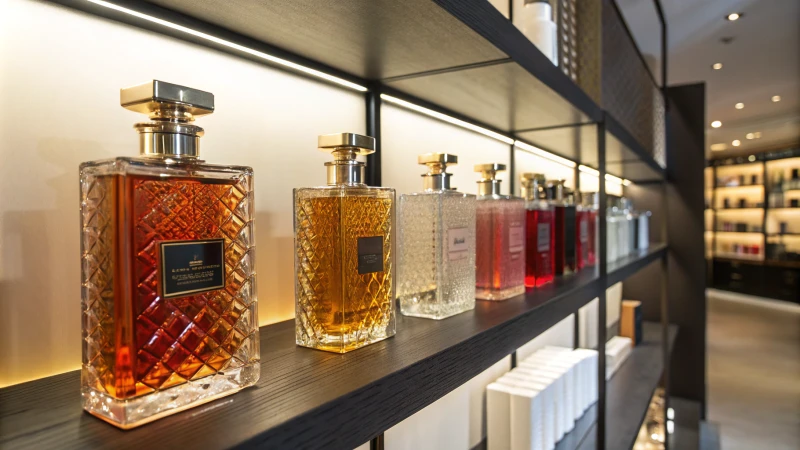
Ever wondered why your favorite perfume doesn’t come in a massive 200ml bottle? It’s not just about size; it’s about strategy.
Perfumes larger than 100ml are rare due to low consumer demand, increased production costs, and strategic brand positioning. These factors combined make smaller bottles more viable for both consumers and manufacturers.
I remember strolling through a perfume shop, mesmerized by the variety of scents, each in its petite glass bottle. It made me curious why they rarely come in sizes over 100ml. Turns out, it’s a mix of practical and strategic reasons. Consumers prefer smaller bottles for freshness, cost efficiency, and the flexibility to switch scents with seasons or moods. Larger bottles don’t just cost more to produce but also risk quality degradation over time. Brands also want to keep that aura of luxury and exclusivity intact. So, while a giant bottle might seem like a dream, it often doesn’t fit the reality of the fragrance world.
Perfumes over 100ml are not cost-effective to produce.True
Increased production costs make larger bottles less profitable for manufacturers.
Consumer demand for perfumes over 100ml is high.False
Low consumer demand discourages the production of larger perfume bottles.
Why Do Consumers Prefer Smaller Perfume Bottles?
Ever wondered why smaller perfume bottles are stealing the show?
Consumer preference for smaller perfume bottles is driven by portability, affordability, and environmental consciousness. These bottles cater to modern lifestyles, offering convenience and an opportunity for fragrance variety without the commitment of larger sizes.
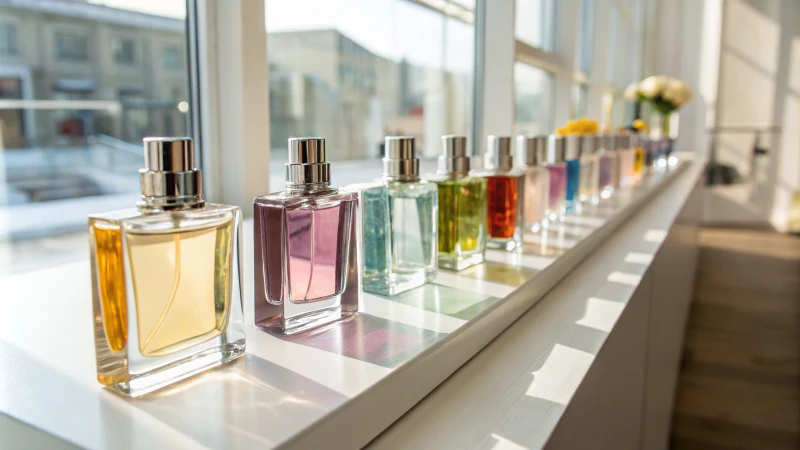
Portability: Convenience on the Go
I remember the days when my handbag felt like a black hole, swallowing everything I needed for the day. Lugging around a giant perfume bottle was simply not an option. Small perfume bottles are a game-changer for those of us who are constantly on the move. Whether I’m dashing through airports or just running daily errands, these compact scents are a lifesaver. They fit snugly into any bag, making sure I never have to compromise on smelling great, no matter where I am. Travel-ready scents1 are perfect for the traveler in me who values both convenience and luxury.
Affordability: Luxury Without the Splurge
As someone who loves experimenting with different fragrances, I appreciate how smaller bottles make high-end perfumes more accessible. They allow me to dip my toes into the luxurious world of fragrances without having to break the bank. This way, I can indulge my curiosity and try out new scents without a hefty financial commitment. Plus, these little treasures often come in exquisite packaging, making them delightful gift options2 that don’t sacrifice style or elegance.
Sustainability: A Step Towards a Greener Future
I’ve always been conscious about my ecological footprint, and choosing smaller perfume bottles is one of the ways I contribute to a more sustainable world. They require less material and energy to produce, which is a win for the environment. Many brands are now offering refillable options too, allowing me to reuse packaging3 and further reduce waste—something that aligns perfectly with my eco-friendly lifestyle.
Consumer Behavior: Variety and Choice
I must admit, I love having a variety of scents at my fingertips. Smaller bottles make it possible to own multiple fragrances and switch them up according to my mood or the occasion. This flexibility is part of the broader trend of personalization in the beauty industry. And let’s not forget about the allure of limited editions in smaller sizes—they create an irresistible sense of exclusivity that keeps me coming back for more. Explore fragrance collections4 that showcase these unique offerings.
| Benefit | Smaller Bottles |
|---|---|
| Portability | High |
| Affordability | Moderate |
| Sustainability | High |
| Variety | High |
Smaller perfume bottles are more portable than larger ones.True
Their compact size allows easy storage in bags, suiting mobile lifestyles.
Larger perfume bottles are more sustainable than smaller ones.False
Smaller bottles use less material and energy, making them more eco-friendly.
How Does Bottle Size Affect Perfume Quality and Longevity?
Have you ever wondered why some perfumes just seem to last longer than others? It might be the bottle size that’s making the difference.
Bottle size can greatly impact perfume quality and longevity. Smaller bottles usually keep fragrances fresher due to less air exposure, reducing oxidation and scent degradation.
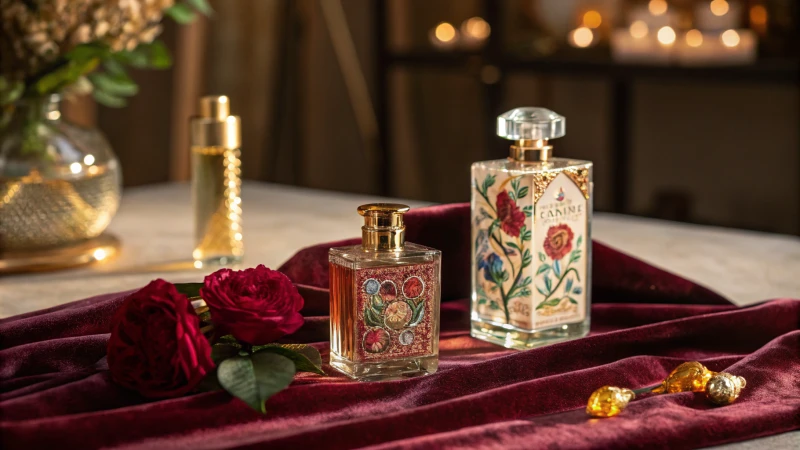
The Science of Scent Preservation
You know those moments when you catch a whiff of a perfume and it instantly transports you back to a special memory? That magic is often kept alive by how well a perfume is preserved in its bottle. I remember once buying a large bottle of a favorite scent, thinking it would last me ages. However, a few months in, it didn’t smell quite as enchanting. That’s when I learned about oxidation5—how more air exposure in bigger bottles can cause fragrances to fade faster. Smaller bottles keep the magic intact by limiting air exposure.
Cost Implications
At first glance, those big bottles can look like a great deal, right? But hidden behind that alluring price tag are costs you might not immediately consider. It reminds me of when I decided to splurge on a larger bottle, only to later realize that the extra packaging materials and shipping6 were quietly adding up. Plus, I noticed the scent didn’t feel as fresh after a while.
| Bottle Size | Production Cost | Storage Requirements |
|---|---|---|
| 50ml | Lower | Minimal |
| 100ml | Moderate | Standard |
| 200ml+ | High | Extensive |
Consumer Preferences and Market Trends
These days, everyone seems to be on the move, trying new things more frequently. I get it—I’ve been there too, wanting variety without committing to just one scent forever. That’s why there’s a growing trend toward smaller, more portable bottles. They’re perfect for slipping into your bag and switching things up depending on your mood or destination. These perfumes are often marketed as travel-friendly options7.
Regulatory Challenges
I once tried to ship a larger bottle as a gift overseas and was surprised by all the hoops I had to jump through! It turns out perfumes in larger sizes are treated as hazardous goods because they’re flammable. Regulations are stricter for these, which is why many brands lean towards smaller bottles that are easier to transport safely.
Brand Strategy and Perception
Luxury brands have this knack for making us feel like we’re holding something truly exclusive. Limiting bottle sizes is part of that strategy—keeping things scarce adds to their allure. When I see a smaller bottle from a high-end brand, I can’t help but feel like I’m getting something special, almost like it’s a rare gem.
Understanding these dynamics can be quite enlightening when you’re deciding which perfume size to go for. It’s not just about how much fragrance you’re getting but also about maintaining that perfect scent profile, aligning with your lifestyle needs, and maybe even enhancing your collection’s prestige.
Larger perfume bottles degrade scent faster.True
More air exposure in larger bottles accelerates oxidation, degrading fragrance.
Smaller perfume bottles are costlier to produce.False
Smaller bottles use less material and simpler packaging, reducing production costs.
How Does Brand Strategy Affect Bottle Size Choices?
Ever thought about why some brands offer petite perfume bottles while others go big? Let’s dive into how brand strategy shapes these decisions and what it means for us as consumers.
Brand strategy guides the choice of bottle sizes by shaping consumer perceptions, streamlining logistics, and preserving an aura of luxury. Smaller bottles often convey exclusivity, fit market trends, and enhance distribution efficiency.
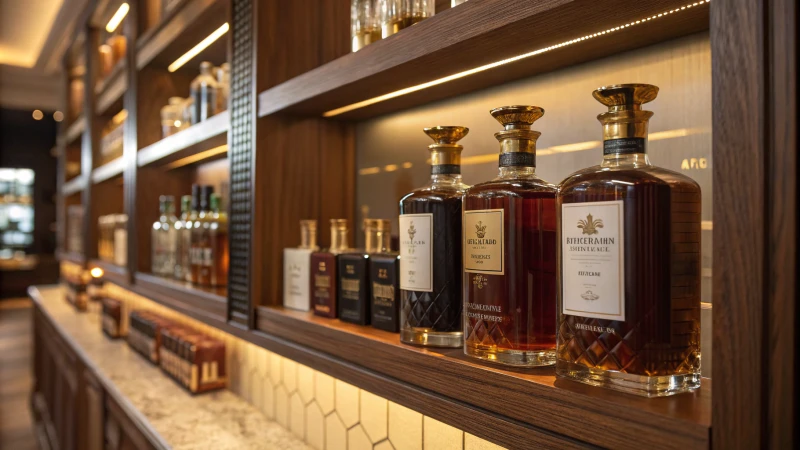
The Consumer Perception Factor
I remember the first time I splurged on a luxury perfume—it came in a tiny, elegant bottle that felt exclusive and precious. This is no accident. Brands often use smaller bottles to project a sense of luxury and exclusivity. It’s like when you walk into a fancy boutique and they have just a few of each item—scarcity makes it special.
-
Luxury Appeal: Imagine holding a 50ml perfume bottle. It feels rarer and more desirable than a bulkier 200ml version. Scarcity enhances the luxury allure, making the product feel unique and valuable.
-
Market Trends: These days, we all love variety without the commitment, don’t we? Smaller bottles let us try different products and keep our collections diverse.
Learn more about consumer trends8 driving these preferences.
Logistics and Cost Efficiency
From my experience running a business, I’ve learned logistics can be a real headache. Smaller bottles are a game-changer—they’re easier to store and ship, which cuts costs and hassle.
| Aspect | Smaller Bottles | Larger Bottles |
|---|---|---|
| Storage Costs | Lower | Higher |
| Transportation | Easier | Challenging |
| Packaging Costs | Reduced | Increased |
Explore the cost benefits9 of limiting bottle sizes for logistics.
Regulatory and Environmental Concerns
Navigating regulations has always been part of the game for me. Smaller bottles often breeze through these hurdles more easily, aligning with both safety standards and sustainability goals.
-
Safety Regulations: With their lower volume, smaller containers often face fewer shipping restrictions.
-
Sustainability Initiatives: Eco-conscious brands favor smaller packaging to minimize their environmental footprint.
Understand how sustainability drives10 these strategic decisions in packaging.
Brand Identity and Positioning
Packaging tells a story about who you are as a brand. Limiting bottle sizes can communicate a message about exclusivity and appeal to specific demographics.
-
Limited Editions: Offering limited editions in smaller bottles can boost brand prestige and attract collectors.
-
Target Demographics: Young, active consumers might prefer smaller sizes for their portability.
Discover the branding strategies11 that influence packaging decisions for modern consumers.
By understanding these elements, I can make smarter decisions that align with my brand strategy, ensuring I meet both market demands and logistical considerations effectively.
Smaller bottles enhance brand luxury perception.True
Scarcity and exclusivity are associated with luxury, boosting brand appeal.
Larger bottles reduce transportation costs.False
Smaller bottles are easier to transport, lowering logistics expenses.
What Are the Economic and Regulatory Implications of Larger Bottles?
Ever wondered why bigger isn’t always better when it comes to bottle sizes? Let’s explore how economic and regulatory hurdles impact the shift to larger bottles.
Larger bottles present challenges like increased production and shipping costs, along with complex regulatory issues, particularly in international logistics. These factors can heavily influence profit margins and compliance efforts for companies.
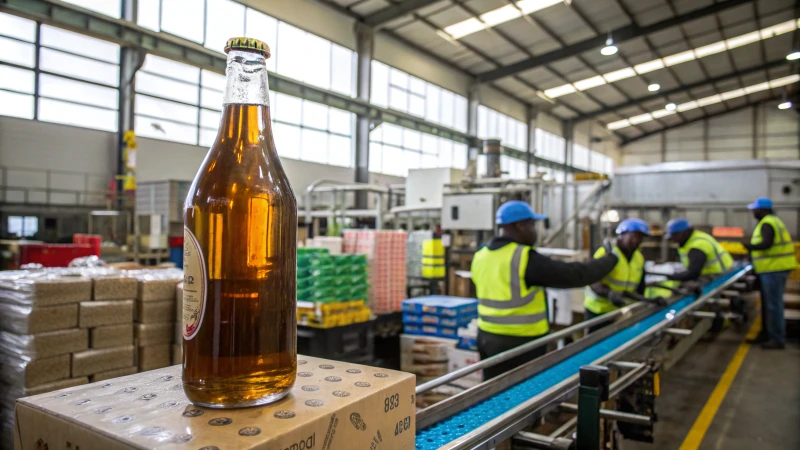
Economic Factors Impacting Larger Bottles
Production and Logistics Costs
I remember the first time I tried to source larger bottles for my cosmetic line. It seemed like a straightforward way to offer more value to customers. But, oh boy, was I in for a surprise! The costs were sky-high, primarily due to the additional materials needed. We’re talking thicker glass, custom nozzles, and unique packaging designs that all added up quickly.
| Aspect | Cost Implication |
|---|---|
| Materials | Thicker glass |
| Packaging | Custom nozzles |
| Shipping | Higher weight |
Then there was shipping. If you’ve ever lugged a suitcase through an airport, you know the pain of paying extra for those few extra pounds. Now imagine that on a much larger scale with bottles — it was a major squeeze on our profit margins. For any business considering this, especially if you’re dealing in bulk like we do, these costs can really hit hard.
Market Demand and Inventory Turnover
In my experience, consumers seem to have a thing for smaller, more convenient sizes. I get it; they’re easy to carry around and use up quickly. So when I stocked larger bottles, they just sat there gathering dust. It wasn’t just a cash flow issue; it was also about valuable shelf space that could have been used more effectively.
Retailers often grumble about the space these big bottles take up, which limits their ability to display other products effectively. It’s a balancing act between offering variety and managing space wisely.
Regulatory Challenges with Larger Bottles
International Shipping Regulations
Navigating the maze of international shipping regulations is no walk in the park, especially when dealing with larger bottles. I recall the headache of dealing with inspections and tariffs when we tried to ship overseas. It’s like trying to fit a square peg in a round hole — frustrating and often costly.
-
Regulatory Table
Regulation Implication Capacity Limits Restrictions on air transport Safety Inspections Higher tariffs, import limits
Safety and Environmental Concerns
Larger liquid containers are often tagged as hazardous due to their flammable nature. This means extra safety measures, which translates into more time and money. Plus, there’s the environmental angle. Larger plastic bottles contribute significantly to plastic waste12, leading to stricter regulations on production and disposal.
Successfully navigating these regulatory landscapes requires a keen eye for detail and a solid understanding of both economic and regulatory factors. Only then can businesses make informed decisions about venturing into larger bottle production.
Larger bottles incur higher production costs.True
More materials and custom designs increase production expenses.
Market demand for larger bottles is increasing.False
Consumers prefer smaller sizes for convenience and cost savings.
Conclusion
Perfumes over 100ml are uncommon due to low demand, higher production costs, quality degradation risks, and brand strategies favoring smaller sizes for luxury appeal and consumer flexibility.
-
Learn how travel-sized perfumes meet the needs of busy individuals who value convenience and versatility. ↩
-
Discover why smaller perfume bottles make perfect gifts for various occasions due to their elegance and affordability. ↩
-
Explore how refillable perfume bottles contribute to sustainability by reducing packaging waste. ↩
-
Find out about fragrance collections that offer mini sizes for those who love variety and exclusivity. ↩
-
Learn how bottle size impacts perfume oxidation and scent longevity. ↩
-
Discover the hidden costs of producing large perfume bottles. ↩
-
Find out why travel-size perfumes are popular among consumers. ↩
-
Uncover how modern consumer behavior is shaping product offerings in the luxury sector. ↩
-
Explore the financial advantages of choosing smaller packaging for transportation and storage. ↩
-
Learn how eco-friendly practices are influencing packaging decisions. ↩
-
Gain insights into how packaging reflects and enhances brand identity. ↩
-
Discover how large bottles contribute to plastic waste and the environmental impact associated with their production and disposal. ↩



